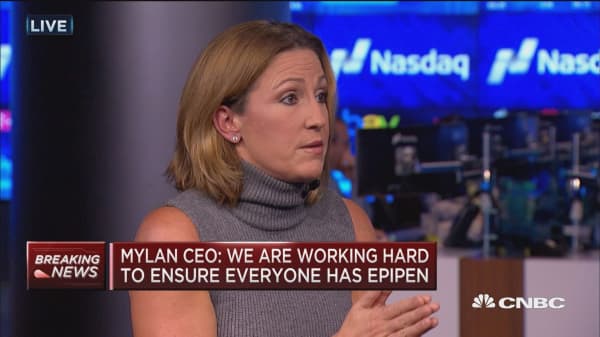Mylan's dramatic price hikes on EpiPen, an injection device used to quickly treat individuals facing life-threatening anaphylactic shock from food allergies or insect stings, has attracted a lot of attention during this year's pre-first-day-of-school shopping season. EpiPens expire after a year, so a lot of parents are buying new ones to throw into their kids backpacks.
(Full disclosure: I am alive today because of timely epinephrine injections on two separate occasions a few decades ago.)
Mylan, has gradually begun to dominate the market for EpiPens, not because of the epinephrine, which is standardized, but rather because it has simplified the injector (which is important because the user in an emergency may well be agitated, whether he or she is the victim or a possibly untrained caregiver). Only one other producer remains on the market with a harder-to-use product.
Mylan blames "the system," saying that families are paying both rising costs for their product and rising insurance premiums. In large part, they are right. The Affordable Care Act provides broken coverage for more people — which is better than fewer people, but still broken. Within that broken system, many sellers are free from competition, and each can seek to maximize its share of an expanding and only elastically limited pool of health-care dollars. The only issue is how much leverage over the consumer each seller has — how "essential" its product or service is. In some instances, patent protection can increase that leverage. In others, the key factor can be first-mover advantages, brand recognition, or costs of entry for potential competitors.
Mylan should be concerned about the reputational risk it runs. Its financial results have been stellar, with revenue up nearly 39 percent since CEO Heather Bresch took over. It may point the finger at the returns enjoyed by other parties in its supply chain to the consumer. But using those rewards as the rationale for further price increases for itself sounds a lot like arguing that its own share of a large pie should be even bigger, regardless of the impact on many consumers. This echoes the frequent over-emphasis (or even sole emphasis) on shareholder value.



